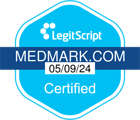What Is the Most Commonly Abused Opiate?
Heroin takes the number one spot. But people seek hydrocodone addiction treatment more often than treatment for any other opiate. According to the National Institute on Drug Abuse (NIDA), Vicodin is the pain pill most commonly prescribed by doctors and dentists, and so people think it’s safe. According to a study that NIDA published in December 2014, Vicodin takes fourth place among high school seniors in a survey about most-used drugs. Only weed, amphetamines including Adderall, and spice are ahead of it.
What Makes Doctors Prescribe Different Pain Pills?
Back in the good old days doctors stuck with dispensing morphine just before, during, or immediately after a surgical procedure. Morphine prescriptions were written only for patients at the terminal stages of cancer or other debilitating diseases.
Hydrocodone was developed by a German scientist in the 1920s, synthesized from codeine. However, it was not married to acetaminophen and marketed as Vicodin until 1978, in a 5 mg formulation. Even into the 1980s, codeine—in a formulation referred to as Tylenol IV—was the number-one prescription pain reliever written by doctors for the average complaint. Pharmaceutical companies contributed to addiction problems because they insisted that the pills they were peddling were not addictive. It took a couple decades, into the late 1990s, until substance abuse professionals identified a need for hydrocodone addiction treatment.
How Does Hydrocodone Differ From Hydromorphone?
Hydrocodone is a synthetic opiate derived from codeine. Hydromorphone is a semi-synthetic drug created from morphine. Hydrocodone is cheaper than either oxycodone or oxymorphone to buy on the street, increasing the need for hydrocodone addiction treatment. Hydrocodone costs about 87 cents per milligram and oxycodone runs about 10 cents more, but hydromorphone tops them all, averaging $3.29 per milligram, according to StreetRx on WordPress.com.
What About Oxycodone?
Oxycodone actually derives from an organic component in opium called thebaine. Back in the 1960s, oxycodone combined with acetaminophen was marketed as Percocet, and with aspirin it was called Percodan. If your doctor wrote you a prescription for “perks,” then everyone knew you were in serious pain. Even today, your doctor might give you Vicodin following a knee replacement, for example, but if you complain about it you’ll get some kind of oxycodone. And it truly is a little bit stronger than hydrocodone.
Why Are Zohydro and OxyContin So Dangerous?
The people who work in methadone programs creating treatment plans for hydrocodone addiction treatment could not believe it when the Food and Drug Administration gave its stamp of approval to Zohydro. Hitting the market in October 2013, Zohydro-ER was the first formulation of pure hydrocodone with extended release, and the FDA praised its creators for leaving out acetaminophen, which was getting a bad rap for causing liver problems.
Like OxyContin, Zohydro incorporates a time-release formulation, with the medication supposedly released small amounts into the patient’s bloodstream over a long period of time. However, people abusing OxyContin learned how to defeat the pill’s time-release mechanism, and the same is true of Zohydro. People suffering from addiction suffer serious risk of death, because releasing all of that medication into the system at once can mean immediate overdose with respiratory failure. Without seeking some level of hydrocodone addiction treatment, the possibility of death from the use of Zohydro becomes frighteningly r eal.
What’s the Outlook on Hydrocodone Addiction Treatment?
First of all, even those who limit their drug use to Vicodin expose themselves to danger. Since doctors and dentists prescribe it so freely, nobody expects to get hooked, and the addiction sneaks up on them.
But the dangers of hydrocodone addiction increased in January 2015 when the FDA approved Hysingla. It is another medication, manufactured by the same company that markets OxyContin, with a formulation intended to create a thick gel if its extended release protectant is tampered with. Like Zohydro and its oxy cousins, it is intended only for people with long-term intractable pain. It should not be prescribed for short-term conditions such as postoperative care or healing trauma injuries. But those who have easy access to hydrocodone, if they do not seek hydrocodone addiction treatment, will not be able to resist seeking it out. They will find ways to abuse it, even if it means taking multiple doses…even if it means death.
If you or someone you know is addicted to Vicodin, Lortabs, or any hydrocodone medication, it’s important for them to get into a treatment program as soon as possible. Methadone and Suboxone programs offer the kind of therapy that helps a person manage cravings and withdrawal symptoms and concentrate on becoming well. Hydrocodone addiction treatment can be successful, if you give it a chance.




